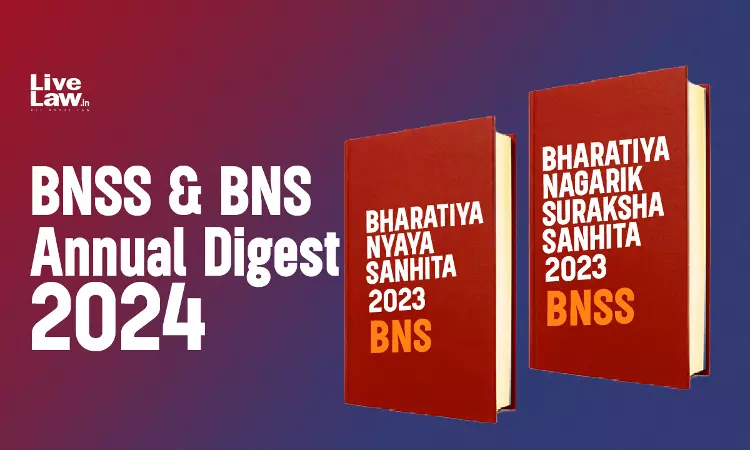Bharatiya Nagarik Suraksha Sanhita (BNSS) And Bhartiya Nyaya Sanhita (BNS) Annual Digest 2024
Sanjana Dadmi
21 Jan 2025 12:00 PM IST

Next Story
21 Jan 2025 12:00 PM IST
Supreme Court:Jail Superintendents Should Make Special Efforts To Identify Women Prisoners Eligible For Release U/s. 479 Of BNSS: Supreme CourtCase Title: In Re-Inhuman Conditions In 1382 PrisonsCitation: 2024 LiveLaw (SC) 908The Supreme Court on Tuesday (November 19) directed Jail Superintendents to make special efforts to identify women prisoners who may qualify for release under Section 479...
